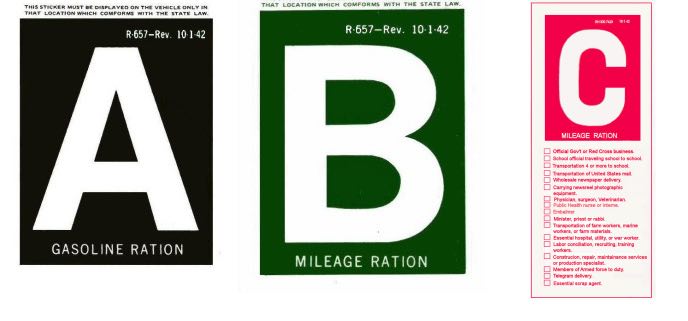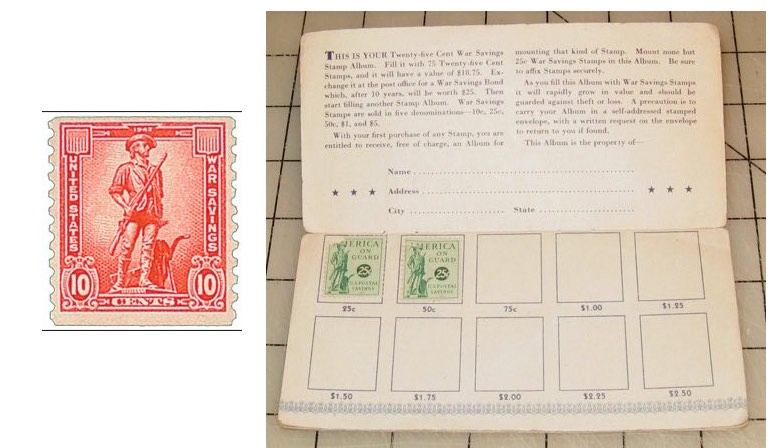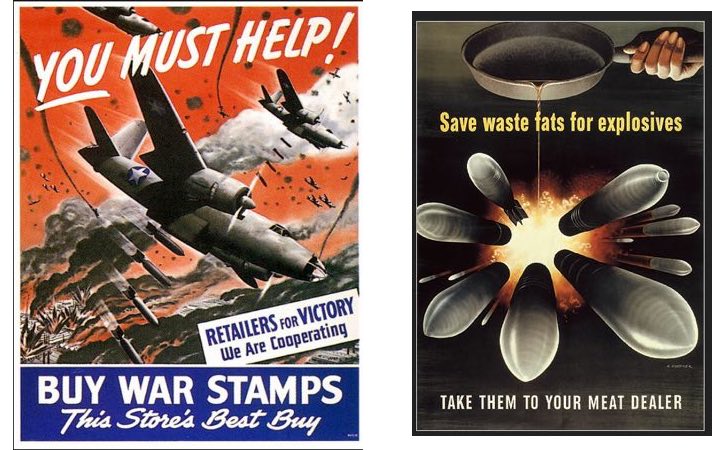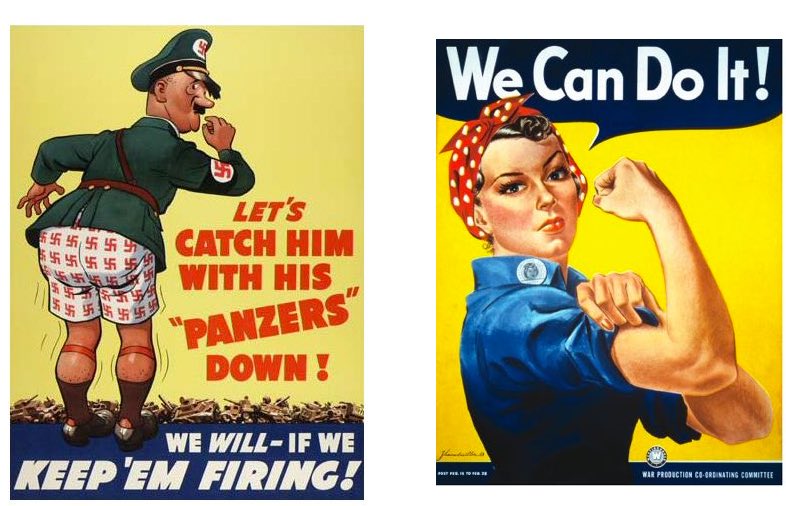The attack on Pearl Harbor by the Japanese occurred on Sunday, December 7th, 1941. I was 8 years old at the time. I remember hearing about it around 1:00 in the afternoon, and I was scared to death. I couldn’t believe that nobody else was panicking. That evening the radio shows went on as usual. I found it disturbing that Gene Autry and others sang songs and carried on as though everything was normal. Of course it wasn’t, as I’m sure everyone knew.
Unlike recent wars, this one really had an effect upon the civilian population. The speed limit was lowered to 50 mph, and later to 35 mph – everywhere. Gasoline was rationed. Each car owner had a gas coupon book and a windshield sticker printed with a large “A”, “B” or “C” which allowed the driver to buy certain amounts of gasoline depending on how important his job was to the war effort. If I remember correctly, an “A” sticker entitled the driver to buy 4 gallons per week, and a “B” sticker 8 gallons.

Gas Ration Windshield Stickers
Meat, canned foods, tires, and sugar were rationed. Ration books were issued by the Office of Price Administration (OPA). Each page was worth a certain number of points. Change was given in tokens, red for meat, blue for other food, each worth 1 point.

Ration Tokens – dime-sized
Building materials were unavailable. Tires were especially critical since the Japanese army had cut us off from our rubber supply in South East Asia. We were encouraged to save fat from bacon etc, and to put it in tin cans to be used to make explosives. Tin cans were flattened and saved. Everyone was encouraged to grow a “Victory Garden” and to buy “War Bonds” to pay for the war. A war bond stamp book could be picked up at the postoffice. War stamps were purchased starting at 10 cents apiece. When the book was full, $18.75 had been invested and the book was turned in for a bond worth $25 in ten years.

War Stamp and Stamp Book


War Morale Posters
New cars were no longer manufactured. The auto companies were making planes, tanks, and trucks. It wasn’t long before Model A Fords appeared to be the most numerous cars on the road. The last one of those was manufactured in 1931, but they were the cars that were tough enough to run without parts replacements, and of course no parts were available.
Everyone who wanted a job could now get one working in a defense plant. People had money, but now the problem was that there was a shortage of things to buy.
Uncle Claude and Aunt Jane Lang worked at Goodyear Aircraft. Claude was an electrician and wired B29 bombers, Jane worked in the production line and in the office. Uncle Walter Lang was sent to medical school and later drafted into the army as a doctor. Uncles Emmet and Bud Roliff were drafted into the infantry and saw action in Europe. Emmet was shot in the arm and Bud ended up with PTSD. They called it combat fatigue back then.
The government used imminent domain to obtain 23000 acres in northern Portage and eastern Trumbull counties to build the Ravenna Arsenal, a facility to make and test bombs and artillery shells. My father finally obtained a good-paying job working for the construction company that was building this plant. Even though he now had money, there was nothing much available to buy. That was a good thing because he saved enough to buy a house in Randolph. We moved there in 1943.
During the war Dad had several hives of bees. Since bees make honey, and honey was a substitute for sugar which was vital to the war effort, the OPA determined that it was important to keep those bees alive in the winter. Because of this our family was given the privilege of buying extra sugar for the bees. I believe it was 10 pounds for each hive per year.
I can assure you that the bees never saw any of that sugar.
In February 1942 the Japanese-Americans on the west coast were placed in internment camps surrounded by barbed-wire. Panic set in after the Pearl Harbor attack and the government was afraid our country was going to be over-run by the Japanese army from the coast and these citizens would help their relatives. At that time of panic it didn’t seem like an unreasonable move. Viewed in retrospect it looks like an uncivilized and unfair thing to do. (See recent article)